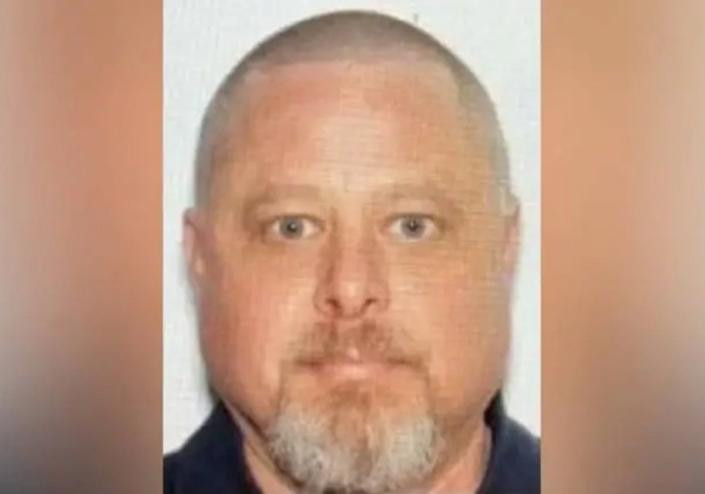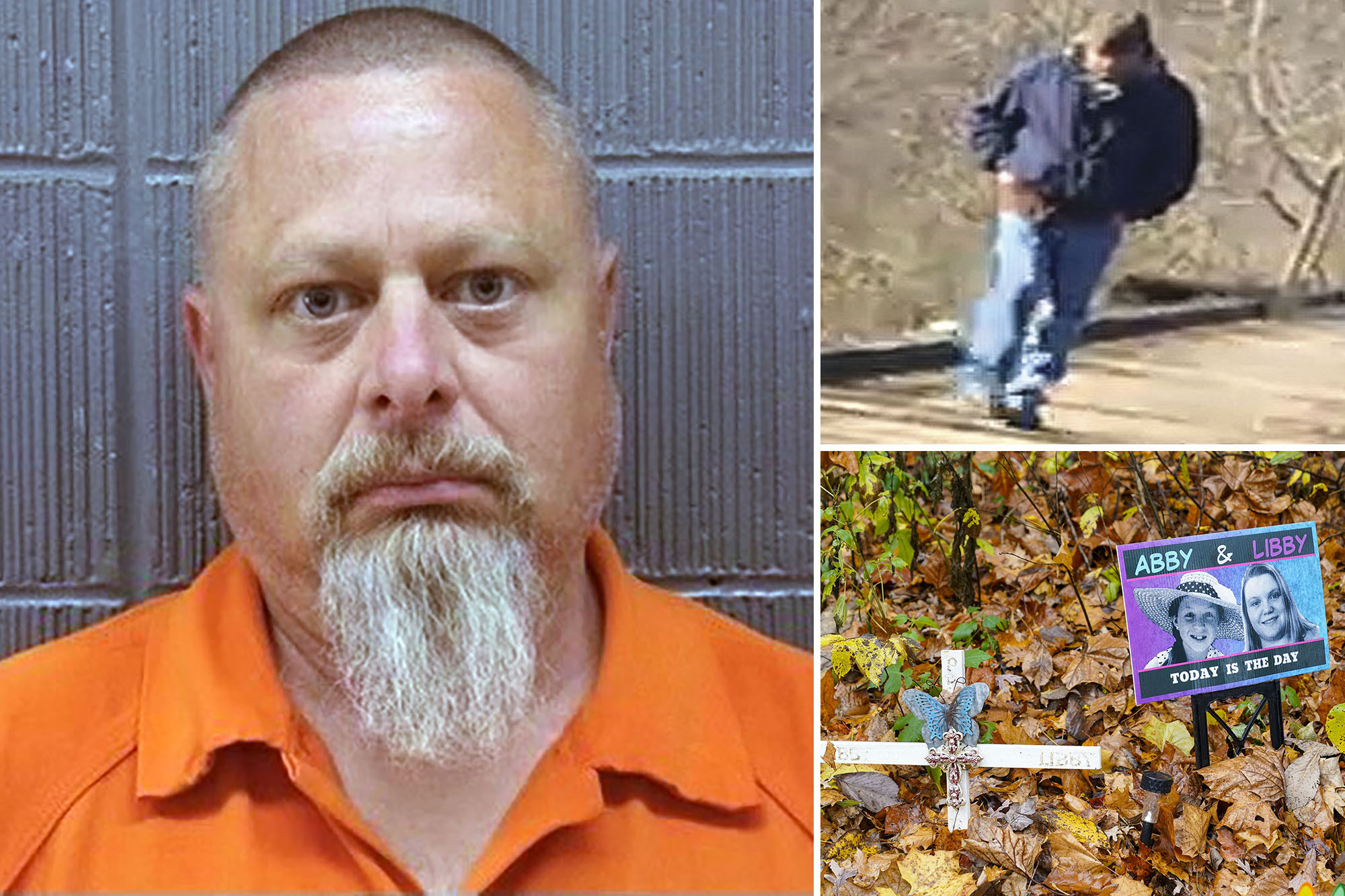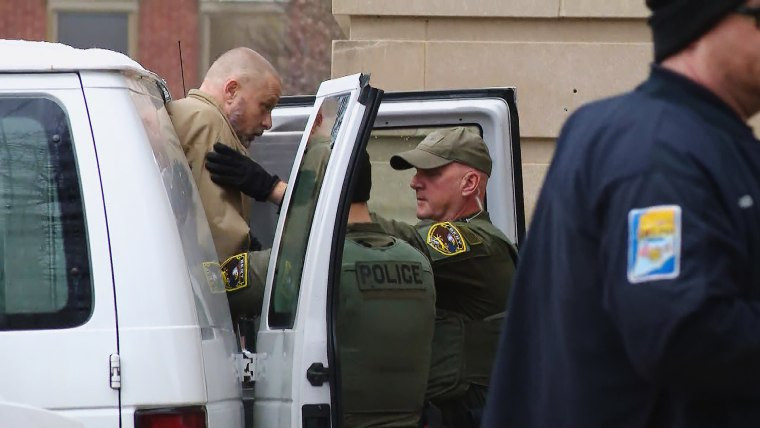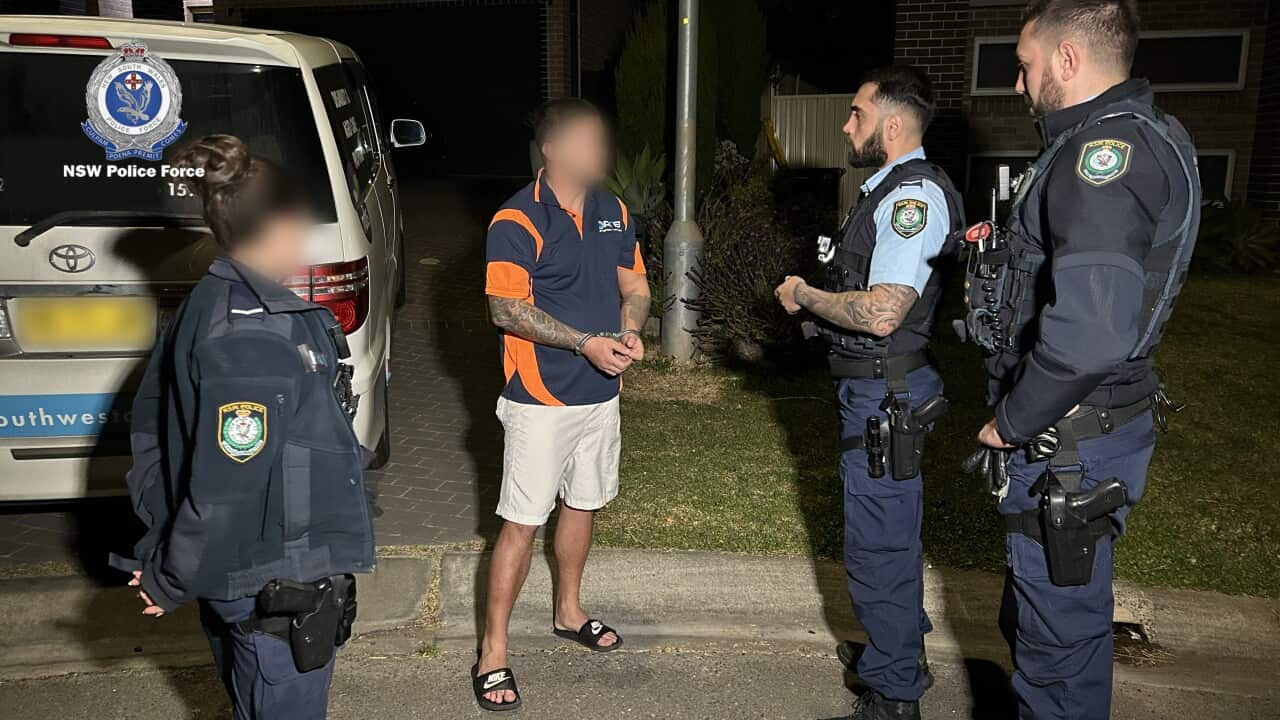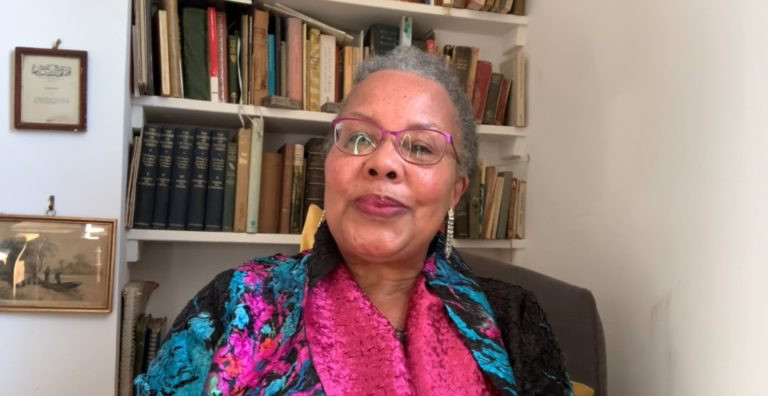A jury has found Richard Allen guilty in the brutal killings of Indiana teens Abigail Williams and Liberty German — who vanished during a hike in Delphi in 2017.
The 12-person jury found Allen, 52, guilty on two counts of murder and two counts of murder while committing kidnapping after roughly 19 hours of deliberating. He faces up to 130 years behind bars at his sentencing.
“I did it. I killed Abby and Libby,” Allen could be heard saying in a recording played for the jury.
But Allen’s lawyers called witnesses, including a psychologist, to suggest that he may have been losing his mind in jail when he made the admissions because of being locked up in solitary confinement for so long.
In his own closings, lawyer Bradley Rozzi said his client is innocent and said the evidence directly linking Allen to the crime was lacking, since there was no fingerprint, DNA or forensic evidence tying him to the slayings. Rozzi also noted that no witnesses identified him as the man seen on the hiking trail the day the girls disappeared.
The jury was shown rough cellphone video taken by one of the girls showing a man, who could be heard telling them, “Down the hill,” after they walked over the abandoned railroad bridge before going missing.
Prosecutors say, a gun-wielding Allen, forced the pair of teenagers off the trail and that he was going to rape them until a van passed by, causing him to change plans.
The jury, and alternates, have been sequestered since the beginning of the trial n Oct. 18 in the small city of Delphi in northwest Indiana. The panelists and special judge, Superior Court Judge Fran Gull, all came from a county on the other side of the state.
The Long Road to a Verdict
The trial, which began on Oct. 18, 2024, was a tense and highly publicized event, with national media outlets closely following each development. The prosecution team presented a strong case against Allen, based on a combination of witness testimonies, physical evidence, and Allen’s own confessions. The defense, on the other hand, argued that Allen was not mentally stable at the time of the confessions, and that there was insufficient evidence to link him to the crime.
Confessions and Mental Health
One of the key pieces of evidence presented by the prosecution was a series of recorded phone calls between Allen and his wife, in which he repeatedly confessed to the murders. The prosecution argued that these confessions, coupled with other evidence, provided a compelling case against Allen. However, the defense countered by highlighting Allen’s mental health struggles, particularly his time spent in solitary confinement, and suggested that the confessions may have been unreliable.
A Case Without DNA Evidence
The absence of DNA evidence linking Allen to the crime scene was a significant point of contention throughout the trial. The defense emphasized this lack of evidence as a major reason to doubt Allen’s guilt. The prosecution, however, emphasized other forms of evidence, such as witness testimonies, physical evidence, and Allen’s own confessions, to solidify their case against him.
The Verdict and its Aftermath
After nearly four weeks of intense scrutiny and deliberation, the jury returned a guilty verdict on all four counts against Richard Allen. This verdict brings a sense of closure to the families of the victims and the community of Delphi, who have been grappling with the tragedy for years. However, the long road to justice for Abigail Williams and Liberty German is far from over. Allen’s sentencing hearing, which will be held on Dec. 20, 2024, will determine the exact length of his prison sentence.
Looking Forward: The Legacy of the Delphi Murders
The Delphi murders case, a complex and tragic event, has gripped the nation’s attention for years. The case has generated significant interest in the broader themes of crime, justice, and the power of community. It has also shed light on the challenges of investigating and prosecuting difficult crimes, particularly those involving missing and murdered children. As the case moves into its sentencing phase, it is important to remember the victims and their families, who continue to navigate the profound loss they have endured. The Delphi murders serve as a stark reminder of the importance of seeking justice for all victims, and the enduring power of community in the face of tragedy.




